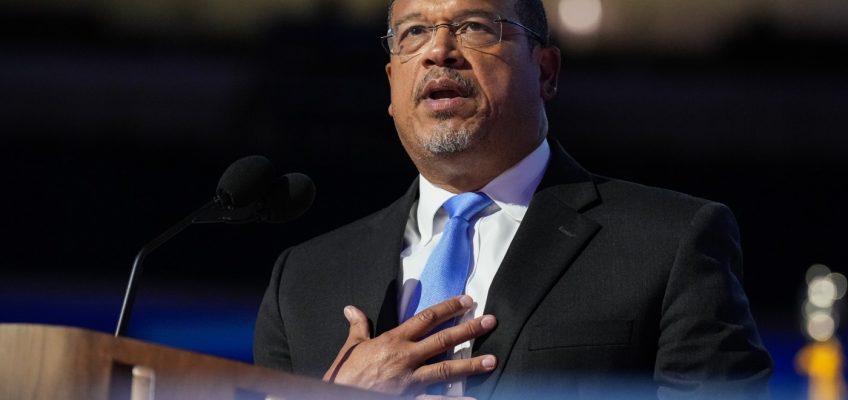Minnesota human rights law lets transgender athletes compete in sports consistent with their gender identity and it supersedes President Donald Trump’s recent executive order banning transgender athletes from women’s sports, Minnesota Attorney General Keith Ellison said on Thursday.
Ellison’s opinion comes after the Minnesota State High School League asked his office for formal advice on the matter. The state high school league is currently being investigated by the Trump administration after the league said it would follow state law regarding transgender students.
Trump signed an executive order, but Ellison said that because it lacked congressional authority or a statutory mandate, it did not take precedence over state law.
Specifically, he concluded that the Minnesota State High School League would violate the Minnesota Human Rights Act if it went along with the Trump order and prevented transgender athletes from participating in high school sports or other activities.
The high school league on Thursday acknowledged receiving Ellison’s opinion but had no other immediate comment.
League officials have said that the Minnesota Human Rights Act and Equal Protection Clause of the Minnesota Constitution prohibit discrimination against persons based on sexual orientation and gender identity.
The high school league policy has been in place for a decade. While the initial policy was controversial, supporters say it’s operated quietly and successfully over the decade. The league is a nonprofit voluntary association that governs interscholastic sports and other activities at high schools in Minnesota.
League officials last week signaled it would stay in place following Trump’s executive order but noted they would “continue to review the existing state laws alongside the new Presidential Executive Order.”
Related Articles
Trump fires chairman of the Joint Chiefs of Staff
Judge blocks Trump’s executive order ending federal support for DEI programs
The Supreme Court won’t allow Trump to immediately fire head of whistleblower office
Election officials blast Trump’s ‘retreat’ from protecting voting against foreign threats
Steve Bannon is accused of doing a straight-arm Nazi salute at CPAC but says it was just ‘a wave’
Days after the high school league’s announcement, the federal Education Department said it needed to investigate. In a statement, Craig Trainor, the Education Department’s acting assistant secretary for civil rights, dismissed the high school’s league’s intention to follow Minnesota law and constitution as “meaningless virtue-signaling.”




